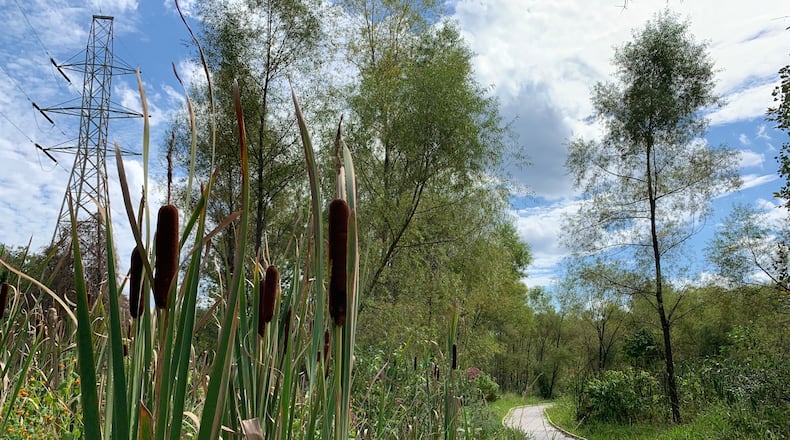The 58-acre reserve has an accessible boardwalk and takes people through the restored wetland ecosystem. The cost to restore the wetland and construct the boardwalk mile was about $640,000, said Jacki Mayer, director of the Beaver Creek Wetlands Association.
Once the invasive species, like honeysuckle, were gone, the natural habitat at the reserve “came back to life,” Mayer said, adding that the reserve’s old-growth trees and wet and dry savannas make for excellent shade and scenery for a late-summer hike.
“it’s one of the places you feel very removed from civilization,” she said. “It’s a way for people to sort of put all the stuff that’s happened every day — whether it’s work or school or kids responsibilities — put that all aside for a short period of time and be calm, immersed in a really beautiful, peaceful place, and in the process, maybe learn about that place while you’re there.”
The Nolin Reserve is the second section of the organization’s Spotted Turtle Trail project, which will provide visitors with nearly 20 miles of wetland hiking trails between Zimmerman Prairie State Nature Preserve in Beavercreek and Pearl’s Fen, north of Fairborn.
When completed, the project will connect multiple wetland ecosystems, and include boardwalks, pedestrian bridges and overlook platforms which will give visitors access to Greene County wildlife that was previously rare to come across.
In the continental United States, about 53% of wetland area that existed prior to the Revolutionary War has been lost, according to the U.S. Fish and Wildlife Service.
In addition to being one of the most biologically productive ecosystems in the world, wetlands function as “the Earth’s kidneys,” absorbing and filtering toxins and pollutants from rainwater through its deep system of roots.
The full Spotted Turtle Trail is estimated to be completed in seven years. The next step for Beaver Creek Wetlands Association volunteers is constructing boardwalk in the James P. Amon Reserve, off New Germany-Trebein Road in Fairborn.
About the Author


